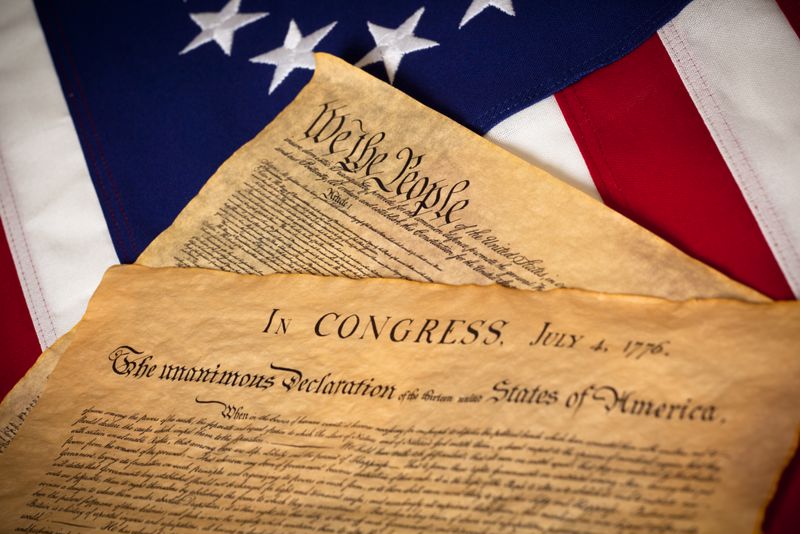What led up to the Declaration of Independence? Yes, it certified America as being independent of Britain, but influential thinkers like John Adams — who was initially considered a radical for wanting complete separation — didn’t become mainstream until Thomas Paine’s “Common Sense” publication. This piece will explore the development of how the idea of full independence came to be.
King George’s mercilessness shaped later public opinion
At the very beginning of the Revolution, most colonists didn’t want independence from Britain, but reconciliation. Still feeling loyal to King George III and Britain but opposed to the extreme taxes and unfair laws imposed upon them, they wanted to make a deal with the king and return as British citizens.
John Adams was one of the first individuals who called for full independence — to make America its own nation and government. However, he and others who thought like him were unable to change the majority opinions of the colonists — for a time.
Public sentiment started to shift as King George III ramped up his efforts to eliminate the rebels. When news of his intentions reached the colonies, the ideals of Adams and other “radicals” rapidly became more popular.
However, even this wasn’t the turning point. Many conservatives still held on to the idea that reconciliation was possible. The notion that America should be fully independent only became cemented in the majority of colonists’ minds after Thomas Paine published a pamphlet titled “Common Sense.”
 “The appearance of the U.S. Department of Defense (DoD) visual information does not imply or constitute DoD endorsement.”
“The appearance of the U.S. Department of Defense (DoD) visual information does not imply or constitute DoD endorsement.”“Common Sense” and its influence
Thomas Paine’s 47-page “Common Sense” pamphlet was published in Philadelphia in January 1776. Within it, Paine illustrated a passionate ideal for American exceptionalism. Believing America represented a “promise” that could only be achieved through total independence and separation between Americans and Britains, he laid out his case that this was the only natural option.
“Common Sense” was immensely popular. Its ideas influenced a massive number of colonists and galvanized support for the Revolution. By the time the Revolutionary War ended, it had sold about 500,000 copies — an astronomical number for its time. The publication would even influence some parts of the U.S. Constitution and the Bill of Rights.
Jumping back to 1776, the Continental Congress soon adopted Paine’s idea of separating from Britain and forging a new nation. On July 2, about seven months after Paine’s publication was released, Congress held a vote on declaring independence. The Declaration of Independence was ratified on the 4th and America became its own nation.
Thomas Paine’s humble beginnings belied his impact on history
Born in Thetford, England in 1737, Thomas Paine had little formal education and was plagued by a series of job failures and tragedies.
His luck would pick up when he met Benjamin Franklin in the spring of 1774. Offering Paine a letter of introduction so he could start a new life there, Franklin suggested he move to the American colonies. In November, Paine would arrive in Philadelphia and soon began editing the Pennsylvania Magazine. It was here he wrote a series of pieces following his ideals.
While nothing he wrote came anywhere near the influence of “Common Sense,” Paine wrote other essays and pamphlets. These included “The Age of Reason” and “Rights of Man,” which discussed religion’s role in society and a defense of the French Revolution, respectively. Another example proving he was well ahead of his time is “African Slavery in America,” a piece condemning the slave trade.
Celebrate the history of America’s independence this July 4th
America may never have been its own nation without the ideals and philosophies of people such as John Adams and Thomas Paine. This Independence Day, be grateful that these immensely influential and historically invaluable individuals helped bring you the liberty you have today.

